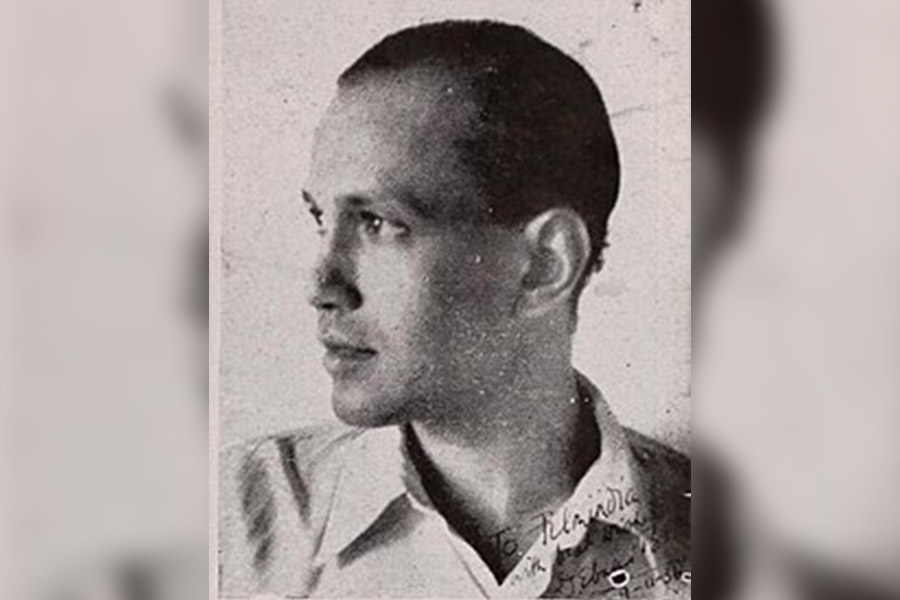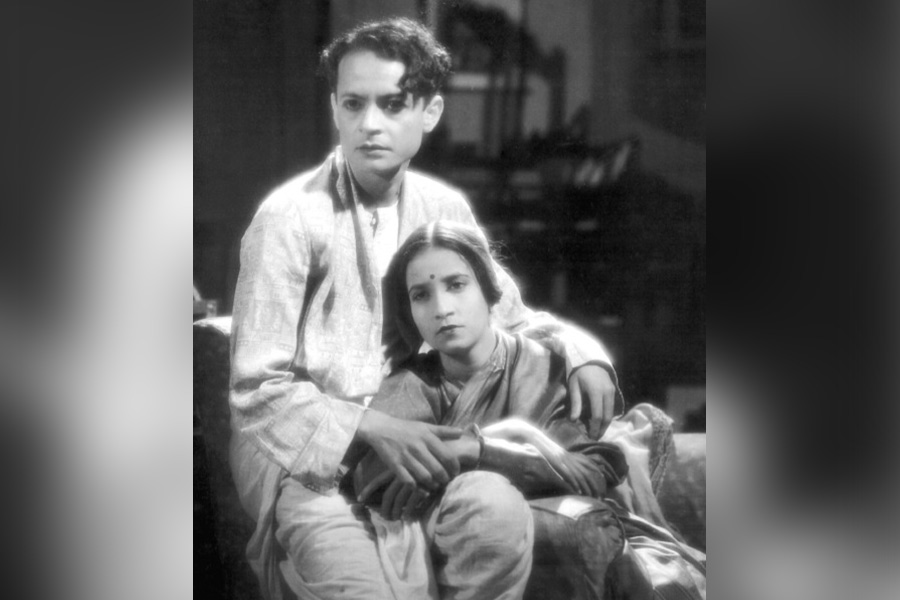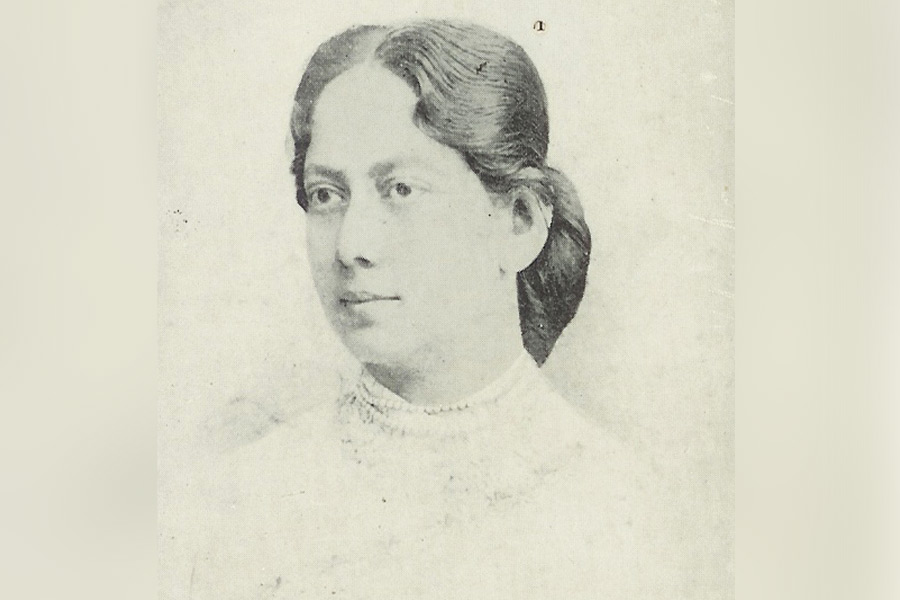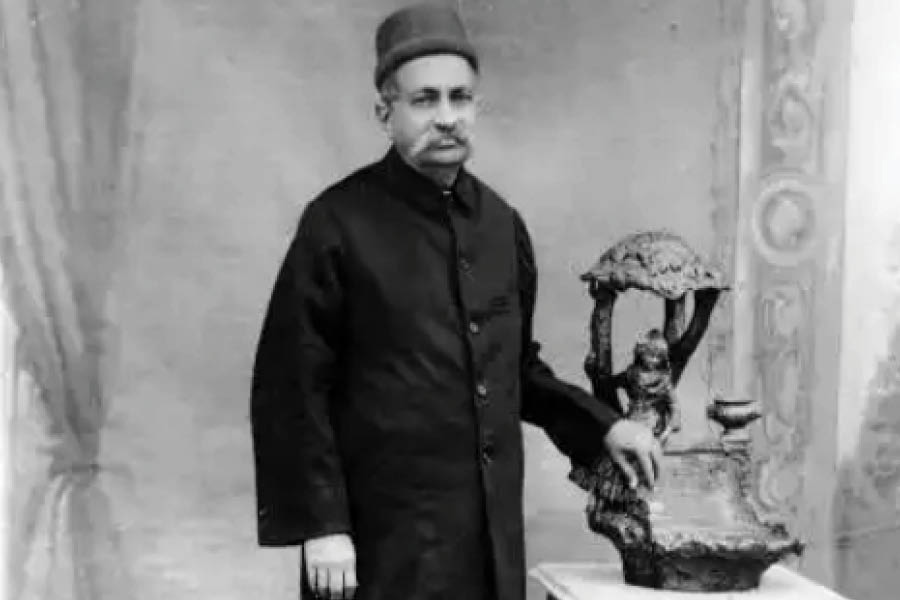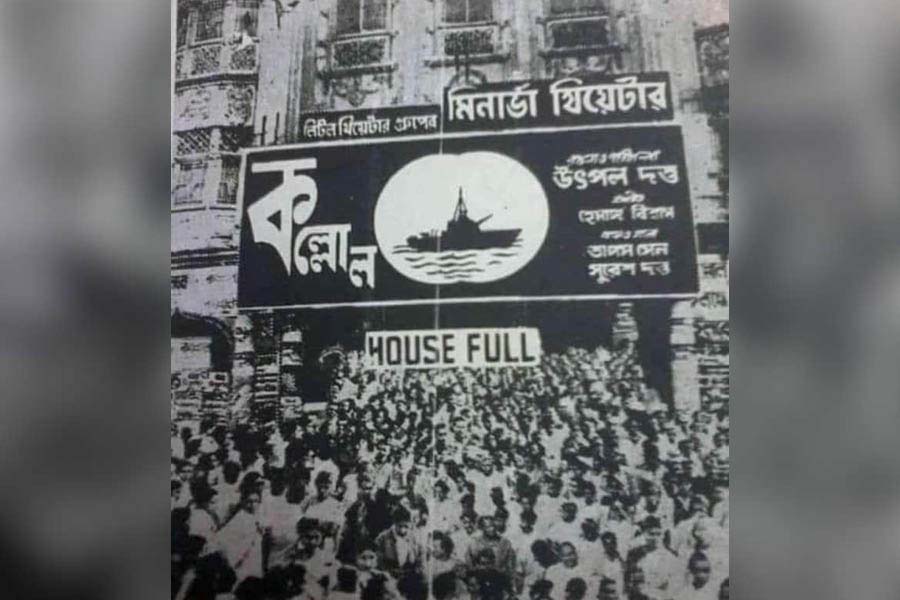When we think of Indian directors who earned international acclaim, the first names that come to our minds are Satyajit Ray, Mrinal Sen, Chetan Anand and Adoor Gopalakrishnan among others. However, one man who predated them all and was probably the first Indian filmmaker to attract global spotlight on his works remains largely shrouded in obscurity today. This is his story.
Debaki Bose was born on November 25, 1898, in a place called Akalposh in Burdwan district of then Bengal Presidency (present-day East Bardhaman district in West Bengal). His father was a successful legal practitioner in Burdwan and for a while, it would seem that Debaki would also follow suit. But while pursuing his graduation at Vidyasagar College in Calcutta, young Debaki was attracted and inspired by Mahatma Gandhi’s call for Non-cooperation Movement. While writing an examination, he cancelled his papers and walked out, immersing himself in the freedom movement.
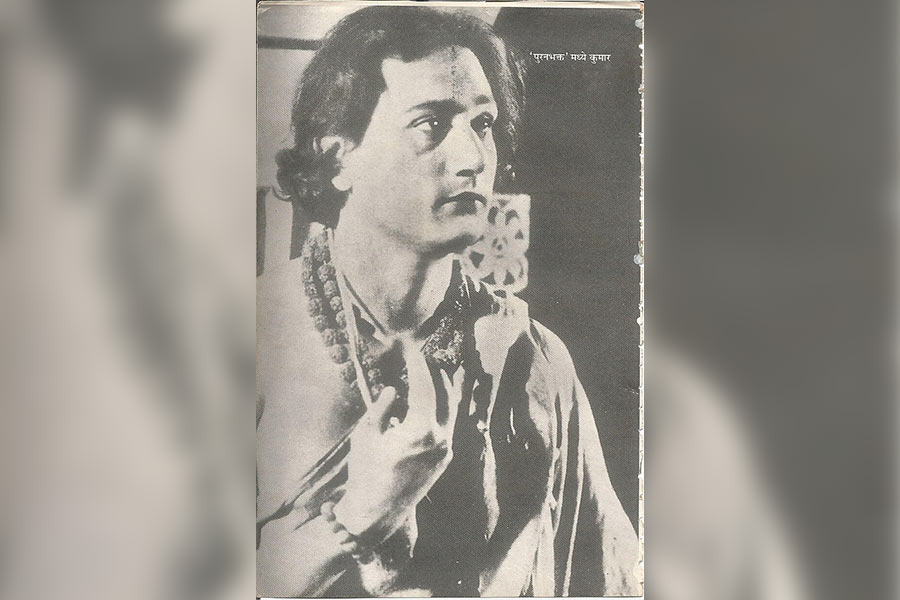
A still from ‘Puran Bhakt’
When he went back to Burdwan, his decision was met with disapproval by his father, Debaki left home and started living on his own. To sustain, Debaki opened a shop selling towels. He also started editing a local weekly titled Shakti, known for its strident anti-British messages. But Debaki’s life was soon to change. Dhiren ‘DG’ Ganguly, a pioneer of silent filmmaking in India, was visiting Burdwan. By then, Debaki had earned some fame for his writings. DG met Debaki and offered him an opportunity to work in films. Debaki’s life would change forever.
His first foray into filmdom happened in 1930 as a writer and actor in the film Kamonar Aagun (Flames of Flesh) – the first film made by DG’s British Dominion Films. Debaki’s directorial debut was in the same year in the film Panchasar. It was to be the start of an inspiring and pioneering journey that would last for the next 30 years. In 1931, Debaki directed Aparadhi, starring PC Barua and Sabita Devi – the first production in Calcutta to use artificial lights for shooting. The film received a lot of critical acclaim and put Debaki Bose in the spotlight.
In 1932, Debaki joined BN Sircar’s famous New Theatres. Chandidas, made for New Theatres, was the first talkie to use background music. A year later, Debaki made Puran Bhagat – his first Hindi film. Ray Chand Boral composed the music of the film while KL Saigal acted and did the playback in the film. The success of Puran Bhagat now placed Debaki Bose in the national playground.
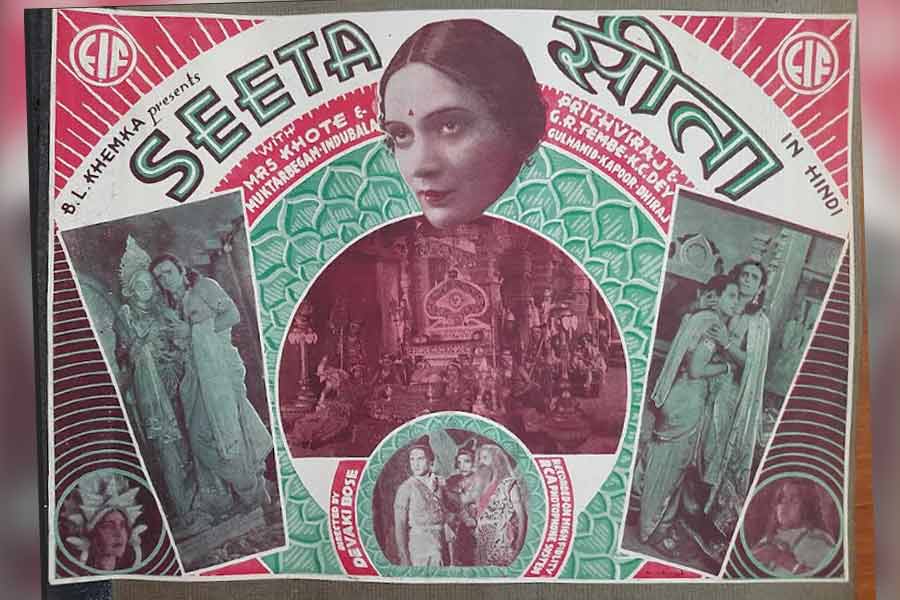
A promotional poster of the 1934 film ‘Seeta’
Seeta, released in 1934, starring Prithviraj Chauhan as Lord Rama and Durga Khote as Seeta Devi, would put Debaki in august company. Seeta won Certificate for Merit at the iconic Venice Film Festival in 1934, making Debaki Bose the first Indian filmmaker to win an international honour. In the coming years, he would remain prolific, not just in Bengali, but also making films in Hindi and Marathi. Another landmark film of Debaki Bose’s career was Sagar Sangamey, released in 1959. Sagar Sangamey won the National Award for the Best Feature Film at the 6th National Film Awards in 1959 and was also nominated for the prestigious Golden Bear at the 9th International Berlin Film Festival the same year.
In 1961, on the occasion of Rabindranath Tagore’s birth centenary, the West Bengal government decided to produce a special documentary titled Arghya based on four poems of Tagore — Pujarini, Puratan Bhritya, Abhisar and Dui Bigha Jami. Debaki Bose directed Arghya which was lauded for its powerful message on the caste system. Arghya would remain his final piece of work. He largely moved away from films after Arghya and passed away on November 17, 1971.
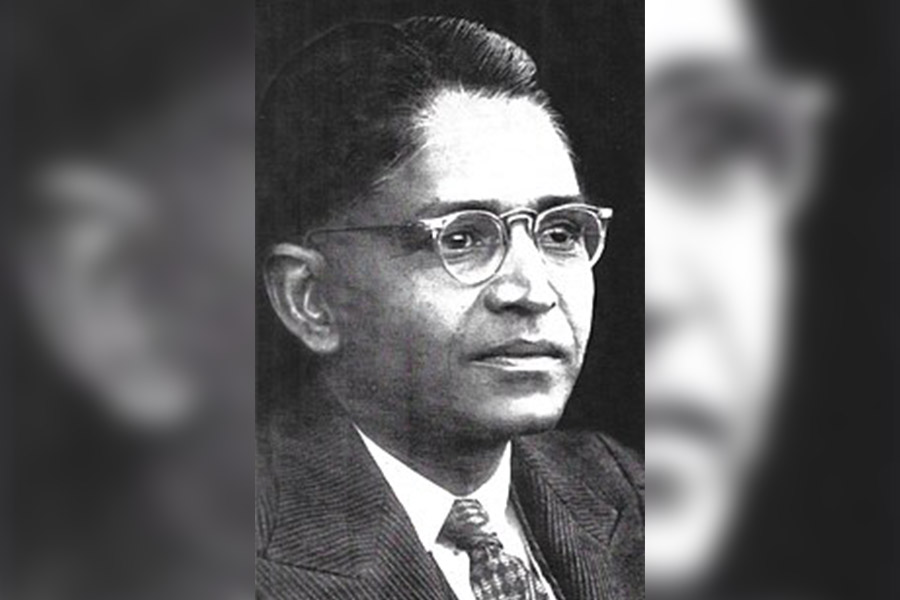
DG Ganguly
Debaki Bose’s contribution to Indian cinema wasn’t limited to only the films he wrote and directed. Many well-known actors like Kanan Devi, Chhaya Devi and Chandrabati were given their first break by Debaki Bose. Ashok Kumar, the first superstar of Hindi films, was inspired by Debaki Bose’s works to pursue a career in filmdom.
Debaki Bose was honoured with the Sangeet Natak Akademi award for film direction in 1957 and the Padma Shri in 1958. Despite his pioneering contributions to Indian cinema, Bose was never awarded the Dadasaheb Phalke award – the highest honour in Indian cinema and today is largely a forgotten personality. Yet, the journey of Indian cinema owes a sincere note of thanks to Debaki Bose.
